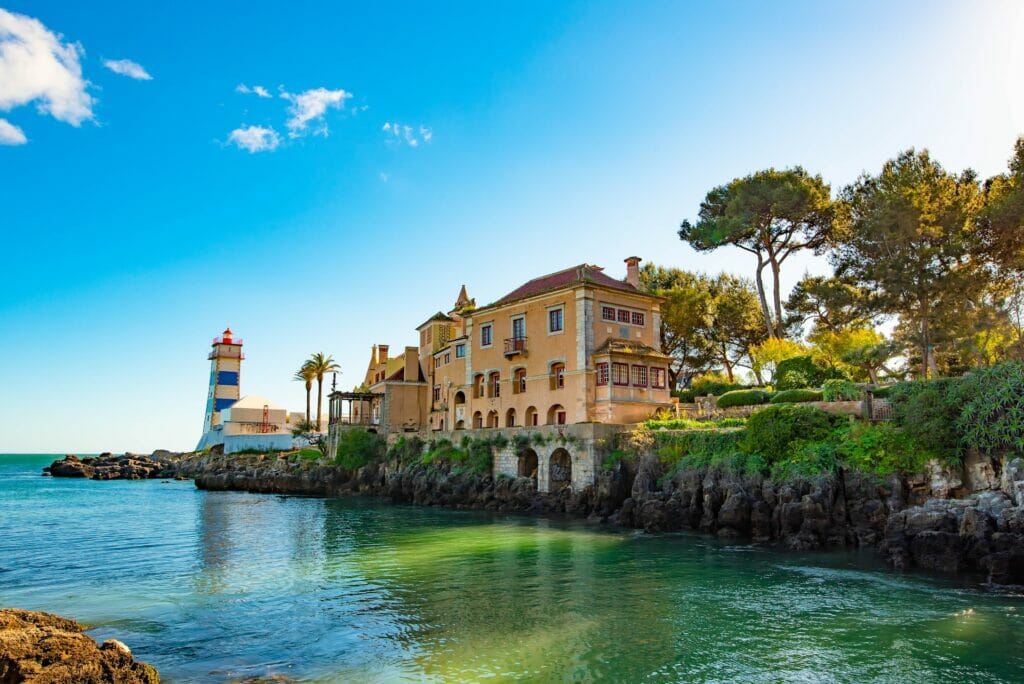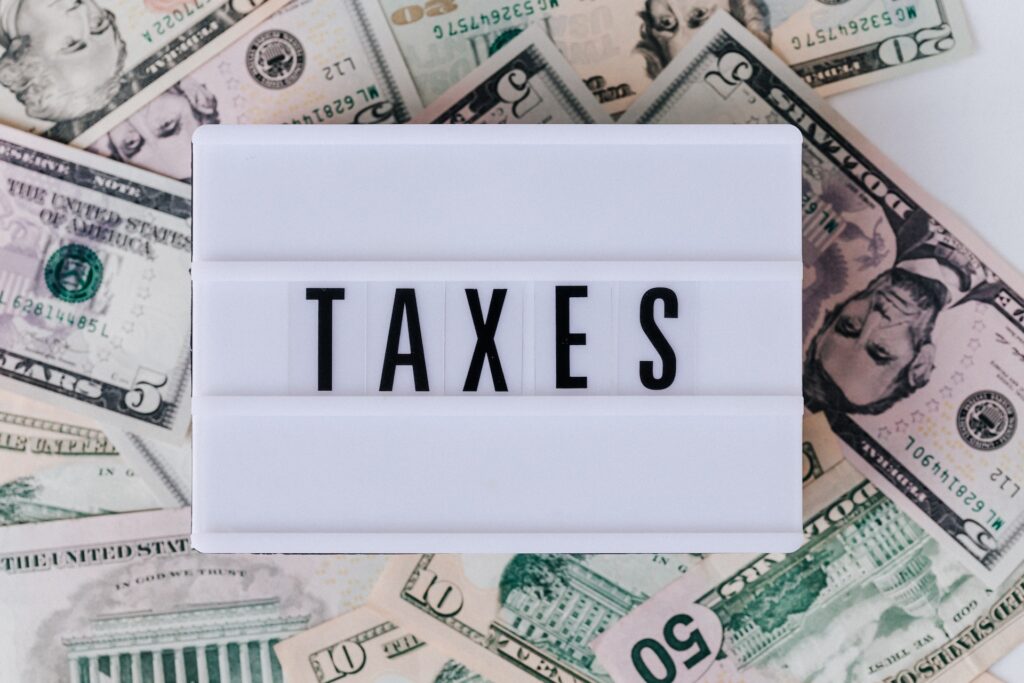Is the Portugal Non-Habitual Resident Tax Regime ending?
The Portuguese Prime Minister Antonio Costa announce his intention to terminate the Non-Habitual Resident (NHR) tax regime in 2024. Having said that, it’s worth noting that any changes makes will not impact existing NHR beneficiaries who have grantee the status for 10 years, as it is commonly understood that applications for this regime are still open until the end of the current year.
Individuals who are contemplating a move to Portugal or are in the process of relocating to the country with the aim of benefiting from the tax advantages should consider seeking professional advice.
What does this mean for individuals with high incomes or those considering moving to Portugal? While some may affect by the changes in the tax regime, many others choose to move to Portugal not solely for tax benefits but for other reasons, such as the quality of life, favorable climate, low crime rates, affordable cost of living, and access to public healthcare.

What is the Non-Habitual Resident (NHR) Portugal regime?
The Non-Habitual Resident (NHR) tax regime in Portugal is a tax program designs to attract foreign individuals, particularly retirees and professionals, to establish tax residency in Portugal.
This regime offers significant tax advantages, including tax exemptions on foreign-sources income and a flat rate of 20% for income earns in Portugal for a specify period of 10 years. It is particularly appealing to those seeking a favorable tax environment, especially on pension income, capital gains, and wealth, as Portugal does not levy a wealth tax.
The Portugal NHR tax regime is available to all new tax residents in Portugal that were not Portuguese tax residents for the 5 previous years. The NHR status is grantee for 10 years and cannot renew. That means that the benefits only last for 10 years. After that, if you remain a Portuguese tax resident, you will become a regular tax resident subject to normal taxation rates and other conditions. That will relevant in the long run since Portuguese tax rates for normal residents can get as high as 48%.
To benefit from the regime, you will have to a resident in Portugal in every year of the 10-year period. You can, however, suspend your residency in Portugal and then renew it and benefit from the remaining years of that initial and one-time-only 10-year period.
Benefits of Non-Habitual Resident Portugal
The benefits of NHR status depend in the specific taxation rules determine in the double taxation agreements signs by Portugal with foreigner countries. Overall, the NHR Portugal(Non-Habitual Resident) program in Portugal offers a range of tax benefits, including:
- Special individual tax treatment on incomes for a period of 10 years
- Differentiation between Portuguese-sources and foreign-source income
- Trend for exemption on the foreign-source passive income
- Flat rate (20%) for high value-added activities
- Tax residency within the EU in a white-list country
- Exemption of tax on gifts or inheritance to family members
- No wealth tax
- Free cash remittance to Portugal

Who can apply for the Portugal Non-Habitual Resident (NHR) program?
The Non-Habitual Resident Portugal regime is available to individuals that meet the eligibility criteria:
- Be an EU/EEA/Swiss citizen or have a residence permit in Portugal
- Not have been a tax resident in Portugal for the past 5 years
- Have a NIF number and register as a tax resident in Portugal
- Spend at least 183 days in Portugal in one given year (doesn’t need to consecutive) or
Spend less than 183 days in Portugal but having a home in Portugal intend to use as habitual residence (private property or rental)
NHR Taxation of Foreign-Sourced Income
NHR individuals may enjoy from such a status for a ten-year period, whether continuously or not, and it allows for lower rates regarding the applicant’s income taxation:
Employment
Income earn through employment should eligible for tax exemption in Portugal if it originates from a foreign source that has been effectively taxed at its source (in accordance with both Portuguese regulations and double tax agreement provisions).
This holds true regardless of the tax rate apply in the source country and irrespective of whether that country or territory has more advantageous tax arrangements. This exemption applies as long as the income is recognizes as having been earns outside of Portugal, following Portuguese tax guidelines.
When the conditions for exemption are not met, income from employee work may tax at a fixes rate of 20%, if derives from an eligible professional occupation.
Self-Employed
In Portugal, the tax exemption for self-employment income should grantee to income classify as originating from foreign sources. This applies, especially if the income is associates with high-value-added activities and can be subject to taxation at the source, either through a double taxation agreement or, in the absence of such an agreement, following the OECD model tax convention. This is particularly relevant when the income is derived from a fixed establishment of the individual in another country.
However, it’s important to note that if the country of origin is included in Portugal’s list of countries, territories, or regions benefiting from privilege and more favorable tax arrangements, the tax benefits under the NHR (Non-Habitual Resident) regime may not be applicable.
Alternatively, if the conditions for exemption are not satisfied, self-employment income may be subject to taxation at a flat rate of 20% if it arises from a qualified professional occupation.
Royalties, Interest and Dividends, Capital Gains and Real Estate Income
The tax exemption should extend to income consider to originate from foreign sources and is subject to potential taxation at the source according to a Double Taxation Agreement (DTA) or the principles outlined in the OECD model convention. Moreover, it’s crucial to note that if the income’s country of origin is lists among Portugal’s countries, territories, or regions enjoying preferential and more advantageous tax agreements, the benefits of the NHR tax regime may not be applicable, potentially resulting in higher tax rates applied to the income in Portugal.
However, it’s crucial to note that if the income’s country of origin is lists among Portugal’s countries, territories, or regions enjoying preferential and more advantageous tax agreements, the benefits of the NHR tax regime may not applicable, potentially resulting in higher tax rates applied to the income in Portugal.
When the conditions for exemption are not met, income from Interests and dividends are taxed at 28% or if the country sourced is a tax haven a 35% is applicable.
Pensions
A reduced tax rate of 10% will applicable to pension income that is not categorize as earns income in Portugal, as per the country’s domestic legislation. Furthermore, similar tax rules may extend to pre-retirement income, income sources from pension funds, and retirement savings accounts, as well as advance payments or principal repayments.
NHR Taxation of Portugal-Sourced Income
*If both employment or self-employment does not fall under the list of eligible professions, then will be taxed at the normal progressive rates (range from 14,5% to 48%) and will be subject also to social security contributions.
Americans and British citizens
The UK, USA, and many more countries have a DTA with Portugal. Therefore, you could be working for an American or English company and not pay any income tax in Portugal under the DTA. Rather, you would pay taxes in the US or England.
In the case you are paid by a Portuguese source and you fall under a “highly qualify professional” then you will pay a flat tax rate of 20% on your income.
Americans or British pensioners living in Portugal under the Non-habitual tax regime are subject to a flat rate of 10% which includes retirement savings and insurance.
However if your pension income happens to tax in Portugal as you are not eligible under a DTA, you are subject to pension tax rates equivalent to income tax, with the potential to reach up to 48%.

Which professions are considered to be of high value?
The professionals listing on the list above must comply with one of the following criteria: a) hold at least a level 4 qualification under the European Qualifications Framework, b) level 35 of the International Standard Classification of Education, or c) five years of applicable working experience, duly proven.
- General Managers, Executive Managers
- Administrative Managers, Commercial Managers
- Production Managers, Specialis Services Managers
- Hospitality, Restaurant, Retail and Other Services Managers
- Specialist Physicists, Mathematicians, Engineers and related Technologists
- Medical Doctors
- Dentists and Stomatologists
- University and Higher Education Teachers
- ICT Specialists
- Authors, Journalists and Linguists
- Creative and Performance Artists
- Intermediate level Science and Engineering Technicians and Professionals
- ICT Technicians
- Farmers and qualify Agriculture and Animal Husbandry workers
- Market-orient Forestry, Fisheries and Hunting qualify workers
- Skill industry, construction, and craft workers
- Plant and machine operators and assembly line workers;
And Directors and managers carrying out productive investment activities, to the extent such personnel are engaged in projects for which contractual tax benefits have been granted under the Investment Tax Code.
Portuguese Taxation Table
Here you can find the Portuguese tax table for 2023, which begins with a tax rate of 14.5% and progressively increases to 48% for the highest income levels.

Double Taxation Agreements with Portugal
The international Double Taxation Agreement (DTA), also known as a Double Taxation Treaty (DTT) or Double Taxation Convention (DTC), is an agreement between two countries that aims to prevent double taxation of income or assets that may arise when a taxpayer resides in one country but earns income or holds assets in another country.
Establishing residence in Portugal means that all income earned by third-country nationals may be subject to taxation, leading to double taxation (both Portugal and the income source country have, presumably, the right to tax).
This situation can only be avoided through the double tax treaties celebrated between countries. A foreign national from a country that signed a tax treaty with Portugal will see his foreign-sourced income benefit from lower withholding tax.
Portugal has entered into DTAs with several countries around the world to eliminate double taxation and promote economic cooperation (see below).
Portugal's Tax Havens
According to the Portuguese tax law, some categories of income and assets can – under certain circumstances – be subject to aggravated taxes due to its origin or connection with any tax havens.
Thus, it is essential to know the list of countries and territories considered as tax havens by the Portuguese law – if the foreign-source income comes from one of the countries on this list:
- Non-applicability of the tax exemption method
- Aggravated rate: 35%
- Possibility of CFC rules implementation

How to apply for the Non-Habitual Resident (NHR) Portugal?
Step 1 – Proof of address
In case you are an EU/EEA/Swiss citizen you are allows to register your proof of address in the local town hall without the need of immigration visa.
However, if you are a non-EU citizen who wish to apply for the NHR tax regime you will need to obtain a residency permit to be legally register in Portugal. The most common ways to get residency in Portugal are the Portugal D7 Visa, also known as the Retirement Visa, and the Portugal Digital Nomad Visa, for remote workers.
Step 2 – Obtain NIF Number
Register with the Portuguese Tax Authorities and obtain a tax identification number (NIF) by submitting a request online or in person at a tax office in Portugal. You will need to present your identification documents, proof of legal residency status, and proof of address to the tax authority representative.
Step 3 – Register as a tax resident
Get registered as a resident for tax purposes. Bring along your passport and the Tax Authority document showing your tax id number and particulars.
Step 4 – Sign up in Tax Authority’s website
You need to sign up in the tax authority website (Portal das Finanças) New User. To register, you will need a NIF number, email address, phone number, and fiscal address. Once registers, you will receive a password by post in your fiscal address in around two weeks.
Step 5 – Submit the NHR request online
After receiving your password, you can then submit your application in the tax Authority website (Portal das Finanças). For that, you need to submit the below documents:
- A rental agreement or a deed of a property in Portugal
- The past five years’ tax returns
In case the Portuguese Tax Authorities have doubts about your effective tax position, additional documents can requests, e.g. tax residency certificate(s) and other documents to prove that the personal and economic interests of the individual were located in other State in the five years preceding the arrival in Portugal.
The NHR status must be requested until March 31st of the year after taking up tax residency in Portugal.

Why choose to work with us?
Local Expertise
We know Portugal. Due to our extensive local knowledge, we believe that concentrating our services in a single country destination is the best way to give you the most thorough and useful information.
Holistic Approach
One single channel of communication for the entire process. We provide you with a comprehensive service that covers all aspects of your move, from identifying the ideal residency visa to finding your new home or helping you to settle.
Transparent Service
We recommend what’s best for you based on an extensive process experience that saves time and money to clients. Our pricing is clear and competitive, and we don’t sell services that make us more money.
Simple Process
Technology plays a very important role in our company. We minimize our clients’ involvement in paperwork. We are customers ourselves and we know how to serve you.
Frequently Asked Questions About Portugal Non-Habitual Tax Regime
Does the NHR allow you to stay in Portugal?
The NHR is not a visa therefore NHR does not provide any specific rights to stay in Portugal. However, to qualify for the benefits of the NHR regime, you need to be a tax resident in Portugal, which means you must spend at least 183 days per year in the country.
Does the NHR Portugal cover my entire family or just me as an individual applicant?
The NHR is a self-contains and individual application, and only affects the tax status of the individual who applies for this regime.
Do I need to stay and live in Portugal to have the benefits of the NHR?
While NHR stands for non-habitual resident, it does not mean that you are not register as a taxpayer in Portugal. To qualify for the NHR, you must a tax resident who has not living in Portugal for the previous five years. To maintain your tax residency, you must spend at least 183 days, consecutive or not, in Portugal within a 12-month period.
When should I apply to the NHR Portugal tax regime?
To apply for the Portuguese NHR tax regime, it is best to do so before March 31 of the tax year in which you became a tax resident in Portugal.
How can I track my NHR Portugal application status?
If the case you have registers online, you can follow your application on this website – Access to: Serviços Tributários – Consultar Pedido – Inscrição Residente Não Habitual.
How long does it take to receive the result of my NHR tax application?
You should learn the result of your application within a few weeks.
Do Portugal has an inheritance tax?
Portugal has an inheritance tax, but there are exemptions available for certain family members, spouses, direct descendants, and ascendants.
What is NHR Portugal minimum stay?
To qualify for the benefits of the NHR regime in Portugal, you must be a tax resident in Portugal, which means you must spend at least 183 days per year in the country.
Is this easier apply for the NHR alone or should I get specialist help?
Applying for NHR status can complex, and it’s important to ensure that you meet all the eligibility criteria and provide all the requires documentation. Working with a specialist, such as a tax advisor or lawyer, can help ensure that your application is complete and accurate.
Can NHR status be extended or re-applied for?
NHR status is granted for a period of 10 years, after which it expires. It might be possible to apply for NHR status again after the 10-year period has ended, but you will need to meet the eligibility criteria at the time of the new application.
Do you need a minimum income amount to qualify for NHR?
There is no minimum income amount requires to qualify for NHR in Portugal. However, you will need to meet the eligibility criteria based on your profession or activity.
Is NHR only available for foreigners?
No. It’s available to Portuguese people as well. The rule is that you must not have been a fiscal resident in the past five years.
If someone stays in Portugal less than 183 days is a tax resident in Portugal?
No, to be considers a tax resident in Portugal, you must spend at least 183 days per year in the country. If you spend less than 183 days in Portugal, you will not consider a tax resident and will not be eligible for the benefits of the NHR regime.
Is Portugal ending the Non-Habitual Resident tax regime?
No, only Prime Minister Antonio Costa announce his intention to terminate the Non-Habitual Resident (NHR) tax regime in 2024.
What happened to the current holders of NHR?
No impact is expect, according to the Prime Minister. Current holders will retain the tax benefits for the duration of the program, which is 10 years.




